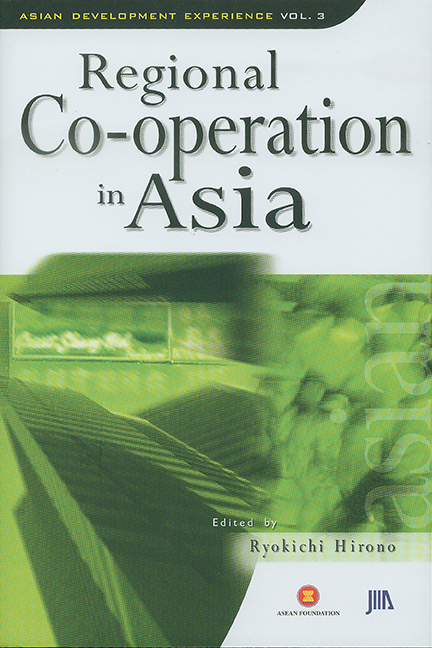Book contents
- Frontmatter
- Contents
- List of Tables
- List of Figures
- List of Contributors
- Acknowledgements
- 1 Structural Changes and Domestic Reforms in Singapore: Challenges and Implications to Regional Co-operation in ASEAN and East Asia
- 2 Asia-Japan Co-operation Toward East Asian Integration
- 3 The Impact of External Changes and Japan's Role in Industrializing Thailand
- 4 Confronting Regionalism in Asia: A View from the Philippines
- 5 Japan's Role in ASEAN-10 Under Globalization: A Japanese Perspective
- OTHER BOOKS IN THIS SERIES
3 - The Impact of External Changes and Japan's Role in Industrializing Thailand
Published online by Cambridge University Press: 21 October 2015
- Frontmatter
- Contents
- List of Tables
- List of Figures
- List of Contributors
- Acknowledgements
- 1 Structural Changes and Domestic Reforms in Singapore: Challenges and Implications to Regional Co-operation in ASEAN and East Asia
- 2 Asia-Japan Co-operation Toward East Asian Integration
- 3 The Impact of External Changes and Japan's Role in Industrializing Thailand
- 4 Confronting Regionalism in Asia: A View from the Philippines
- 5 Japan's Role in ASEAN-10 Under Globalization: A Japanese Perspective
- OTHER BOOKS IN THIS SERIES
Summary
Introduction
The fact that Japan has significantly contributed to the industrialization of Thailand can never be overstated. To begin with, Japan is one of the most important trading partners of Thailand. The value of export from Thailand to Japan in 2002 amounted to $10 billion, or about 14.5% of Thailand's total export. The value of import from Japan to Thailand in the same year amounted to $14.8 billion, or about 23% of Thailand's total import. In terms of investment, foreign direct investment (FDI) inflow from Japan to Thailand amounted to $620 million in 2002, second only to the flow from ASEAN.
In addition to the role of the private sector, the Japanese government also plays an important role in promoting industrialization in Thailand through financial support in the forms of loans and grants as well as technical support. The assistance has contributed to both the hardware and the software sides of the Thai industries. The former includes infrastructure development while the latter includes technology transfer, laws and regulation development and institutional building. During the economic crisis, the Japanese government and private sectors also contributed in alleviating the impact of the crisis. In particular, the Japanese government had initiated a number of projects that aimed at facilitating the recovery of Thailand and other ASEAN countries, most notably the New Miyazawa Initiative. Japanese multinational companies (MNCs) injected capital into their Thai affiliates in the form of loans or equity to retain the level of employment in these firms. Organizations in the third sectors, e.g., the Ja panese Overseas Development Corporation (JODC) and Association of Overseas Technical Scholarship (AOTS), also played important roles in developing human resources in Thailand after the crisis. The assistance and co-operation were highly recognized by the Thai government and private sectors. Indeed, the economic crisis has further strengthened the Japanese–Thai relations.
In future, Thailand and Japan need to deepen their co-operation in areas of mutual benefit. Examples of such areas include human resource development and SME support. The goal of this chapter is to assess the role of Japan in the process of industrializing Thailand in the past decades and discuss some areas for future co-operation
- Type
- Chapter
- Information
- Asian Development ExperienceRegional Co-operation in Asia, pp. 50 - 72Publisher: ISEAS–Yusof Ishak InstitutePrint publication year: 2004



